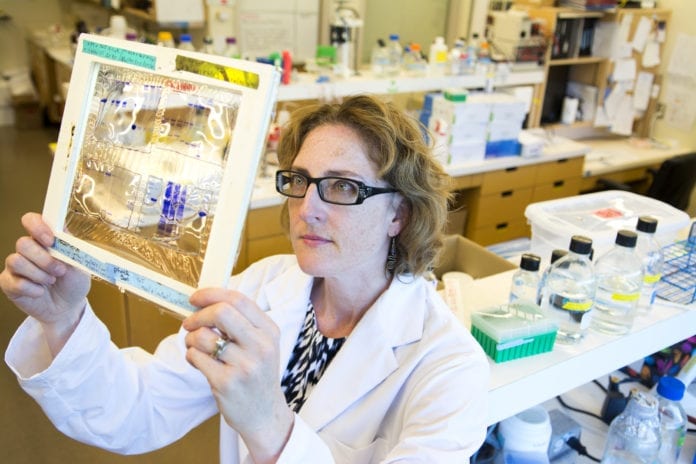College campuses are rather infamous when it comes to sexually transmitted diseases, but the University of Victoria might be on the cusp of changing that, at least when it comes to syphilis.
That’s thanks to UVic microbiologist Caroline Cameron and her colleagues, who have received a patent for a potential vaccine candidate against the centuries-old STD.
Syphilis is a sexually transmitted bacterial disease that dates back to at least 1495. Though it’s treatable with antibiotics, it remains an enduring issue due to its highly infectious nature.
Millions of Cases Worldwide

Worldwide, there are an estimated 11 million cases of syphilis each year. The current rates of the disease in BC are at their highest in 30 years.
The disease increases susceptibility to HIV and can cause irreversible tissue damage if left untreated. It’s also one of the leading causes of infectious stillbirth in low-income countries, leading to more than 205,000 fetal and newborn deaths annually.
”The pathogen that causes syphilis can pass from the bloodstream into the brain, and from a pregnant woman to her fetus,” explained Cameron.
The vaccine component that has been patented is a protein aimed at preventing the bacterium from entering the bloodstream.
Collaborating with Neighbours Down South
Cameron is collaborating with researchers at the University of Washington and the Infectious Disease Research Institute. Together, they’re developing a vaccine composition that incorporates this patented protein component.
 The World Health Organization has an ambitious target of reducing the disease by 90 percent globally. By 2030, it aims to reduce the number of babies born with syphilis to 50 or fewer cases per 100,000 live births in 80 percent of affected countries.
The World Health Organization has an ambitious target of reducing the disease by 90 percent globally. By 2030, it aims to reduce the number of babies born with syphilis to 50 or fewer cases per 100,000 live births in 80 percent of affected countries.
“A vaccine would provide an effective tool (in) the global fight against syphilis, when added to prevention, screening and treatment programs,” said Cameron.



